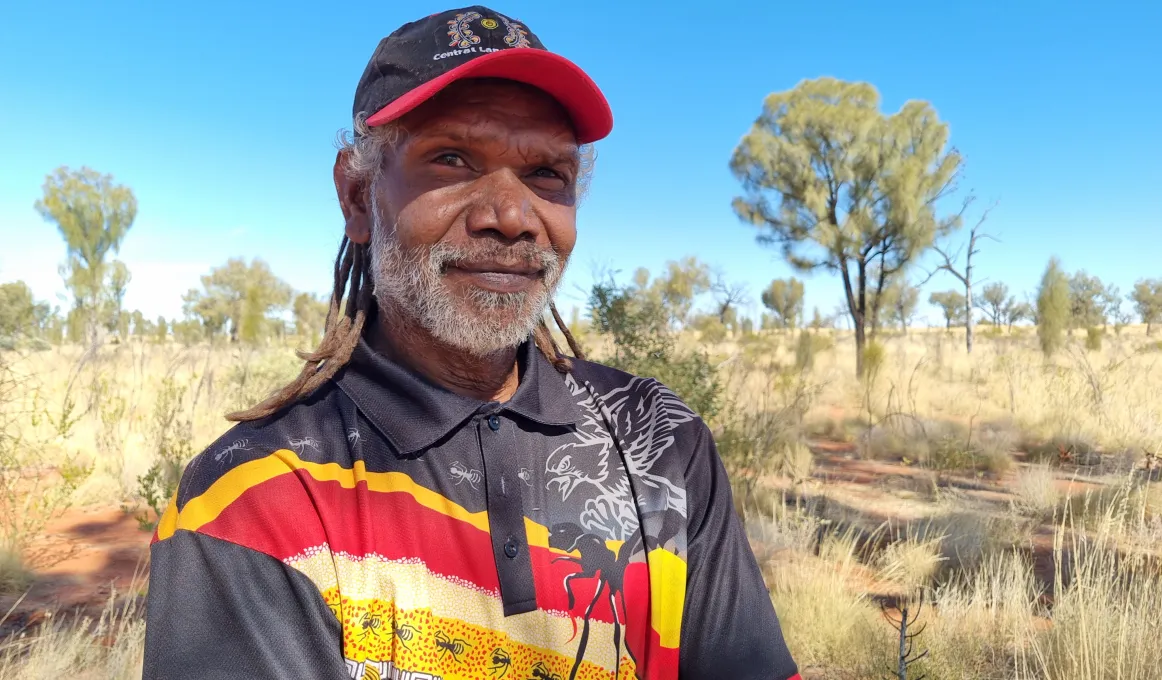Central Australia's Youth cultural learning through Junior Ranger Programs

A new Junior Rangers program and On-Country learning will ensure that Central Australia's youth are equipped with the knowledge, skills, and motivation they need to thrive, learn, and carry on the rich cultural traditions of their ancestors.
With over 65,000 years of wisdom to share and the support of initiatives like the Junior Rangers program and On-Country learning, Terrence Abbott, and First Nations leaders like him, are working to ensure that Central Australia's youth are equipped with the knowledge, skills, and motivation they need to thrive, learn, and carry on the rich cultural traditions of their ancestors.
The programs will introduce learning experiences in Ti Tree, Santa Teresa, Papunya, and their surrounding areas, where school attendance has faced challenges.
By combining traditional wisdom with contemporary skills, the Junior Ranger Program aspires to not only boost school attendance but also help Close the Gap in education, employment, and life outcomes.
As a Papunya community leader, former ranger, and mentor, Terrence Abbott understands the deep connection between the land, culture, and the youth of his community.
‘The chance to care for Country – the animals, waterways, the plants, and our important cultural sites – is a privilege because we are doing this in the same way our ancestors did.’
Terrance emphasised the positive impact of learning on Country, connecting youth with their culture and the land. He stressed the importance of teaching traditional knowledge, such as bush medicine and caring for sacred sites, while expressing his community's optimism for the future.
‘There's over 65,000 years of experience that's been handed down to us. Not in books, not in classrooms. You have to be out here, on Country. That's how we learn what we need to know to protect this place. Like traditional bushfire management. That's so important; to get it right.’
For the youth of Papunya, school attendance can be a challenge, and Terrence knows they need motivation and support.
‘For our young people here, they need motivation because school – they go and then they don't go. Papunya, our community, wants the kids to go to school and we need help. I think the schools need help too. Getting kids to class. Not just for one day or one week. But it's hard,’ he said.
Terrence firmly believes that the Junior Rangers program will be a game-changer for Papunya's youth, as they respond positively to learning on Country.
‘I know the Junior Rangers program will help us here in Papunya, because our kids and our young mob, they respond to learning on Country. They come back with energy. They feel more connected with our culture, our community.’
These programs offer a unique blend of traditional knowledge and modern education, and they're designed to make learning fun and engaging.
‘In my community, we're so positive about what's coming to Papunya. Junior rangers through the schools and taking the lessons out of the classroom to Country, under the skies where we've been forever and ever. They can learn out here. Learn both what they need to learn at school – maths, science, reading and writing, all of that stuff to make them successful. And they can also learn about our traditional life and the skills we are so lucky to have and be able to pass down.’
Terrence's hope is to see all communities in the region benefit from Junior Ranger programs.
‘I'd like to see all of the communities in these parts get junior ranger programs for their schools too.’
Young students in these regions will have the unique opportunity to engage with local Rangers, learning invaluable skills and acquiring a profound understanding of their ancestral lands. This hands-on, culturally-led approach will involve activities such as cultural and heritage camps, traditional medicine workshops, and native wildlife programs, all facilitated by Indigenous Ranger groups.
The program not only aims to keep First Nations young people engaged in their education but also provides potential pathways to vocational training and real job opportunities. By integrating culture and Country into the school curriculum, students in Central Australia will be empowered to reach their full potential.
Find out more
In a significant leap forward towards creating a brighter and more promising future for Indigenous youth in Central Australia, the Australian Government is embarking on a groundbreaking $3.6 million initiative to support these programs. The investment is based on valuable input from community stakeholders, the Northern Territory Government, the Office of the Central Australian Regional Controller, and the Central Australia Plan Aboriginal Leadership Group.